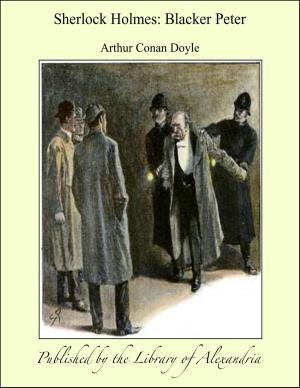Letters from Switzerland and Travels in Italy: Truth and Poetry: from my own Life
Nonfiction, Religion & Spirituality, New Age, History, Fiction & Literature| Author: | Johann Wolfgang von Goethe | ISBN: | 9781465591302 |
| Publisher: | Library of Alexandria | Publication: | March 8, 2015 |
| Imprint: | Language: | English |
| Author: | Johann Wolfgang von Goethe |
| ISBN: | 9781465591302 |
| Publisher: | Library of Alexandria |
| Publication: | March 8, 2015 |
| Imprint: | |
| Language: | English |
How do all my descriptions disgust me, when I read them over. Nothing but your advice, your command, your injunction could have induced me to attempt anything of the kind. How many descriptions, too, of these scenes had I not read before I saw them. Did these, then, afford me an image of them,—or at best but a mere vague notion? In vain did my imagination attempt to bring the objects before it; in vain did my mind try to think upon them. Here I now stand contemplating these wonders, and what are my feelings in the midst of them? I can think of nothing—I can feel nothing,—and how willingly would I both think and feel. The glorious scene before me excites my soul to its inmost depths, and impels me to be doing; and yet what can I do—what do I? I set myself down and scribble and describe!—Away with you, ye descriptions—delude my friend—make him believe that I am doing something—that he sees and reads something. Were, then, these Switzers free? Free, these opulent burghers in their little pent-up towns—free, those poor devils on their rocks and crags? What is it that man cannot be made to believe, especially when he cherishes in his heart the memory of some old tale of marvel? Once, forsooth, they did break a tyrant's yoke, and might for the moment fancy themselves free; but out of the carcase of the single oppressor the good sun, by a strange new birth, has hatched a swarm of petty tyrants. And so now they are ever telling that old tale of marvel: one hears it till one is sick of it. They formerly made themselves free, and have ever since remained free! and now they sit behind their walls, hugging themselves with their customs and laws—their philandering and philistering. And there, too, on the rocks, it is surely fine to talk of liberty, when for six months of the year they, like the marmot, are bound hand and foot by the snow.
How do all my descriptions disgust me, when I read them over. Nothing but your advice, your command, your injunction could have induced me to attempt anything of the kind. How many descriptions, too, of these scenes had I not read before I saw them. Did these, then, afford me an image of them,—or at best but a mere vague notion? In vain did my imagination attempt to bring the objects before it; in vain did my mind try to think upon them. Here I now stand contemplating these wonders, and what are my feelings in the midst of them? I can think of nothing—I can feel nothing,—and how willingly would I both think and feel. The glorious scene before me excites my soul to its inmost depths, and impels me to be doing; and yet what can I do—what do I? I set myself down and scribble and describe!—Away with you, ye descriptions—delude my friend—make him believe that I am doing something—that he sees and reads something. Were, then, these Switzers free? Free, these opulent burghers in their little pent-up towns—free, those poor devils on their rocks and crags? What is it that man cannot be made to believe, especially when he cherishes in his heart the memory of some old tale of marvel? Once, forsooth, they did break a tyrant's yoke, and might for the moment fancy themselves free; but out of the carcase of the single oppressor the good sun, by a strange new birth, has hatched a swarm of petty tyrants. And so now they are ever telling that old tale of marvel: one hears it till one is sick of it. They formerly made themselves free, and have ever since remained free! and now they sit behind their walls, hugging themselves with their customs and laws—their philandering and philistering. And there, too, on the rocks, it is surely fine to talk of liberty, when for six months of the year they, like the marmot, are bound hand and foot by the snow.















